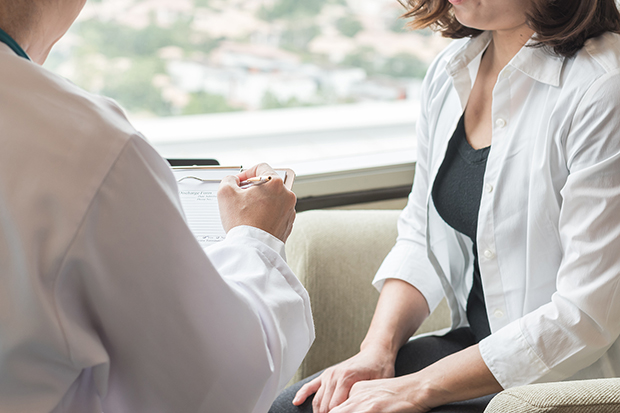How Screenings Can Prevent Cervical Cancer
Here are the steps you can take to prevent cervical cancer.

The most important thing to know about cervical cancer may be this: It's largely preventable. Here's a look at how to protect yourself—or your daughter—from a disease that kills more than 4,000 women every year.
Get screened
A Pap test can find pre-cancerous changes in the cells of the cervix that can be treated before they have the chance to turn into cancer. Most cases of cervical cancer are found in women who haven't had regular Pap tests.
Your doctor may also advise testing for the human papillomavirus (HPV). This sexually spread infection is to blame for most cases of cervical cancer.
The American Cancer Society advises the following cervical cancer and HPV screening schedule if you're:
- 21 to 39 years old: Get a Pap test every three years.
- 30 to 65 years old: Get a Pap test and an HPV test every five years or a Pap test alone every three years.
- Over 65 years old: Stop testing if you've had regular test results for the past 10 years and no aggressive pre-cancers in the past 20 years.
*These are recommendations if you’ve had a negative result. If you’ve had a result that isn’t normal, the recommendations for follow-up differ based on age, test results, and whether both Pap and HPV tests were done. Check with your doctor to see what follow-up is best for you. As a Select Health member, the HPV test is covered as a preventive service once every three years for females ages 21 to 65 years.
Related: HPV Vaccine Can Prevent Cervical Cancer
Get vaccinated
Still another powerful way to prevent cervical cancer is the HPV vaccine. In addition to protecting against cervical cancer, it helps prevent:
- Cancers of the vagina and vulva in women.
- Cancer of the penis in men.
- Cancers of the anus, tongue, tonsils, and back of the throat in both men and women.
Given in a series of shots, the HPV vaccine is advised for all preteen boys and girls ages 11 to 12. Catch-up vaccines are typically given through age 21 for men and 26 for women. And the U.S. Food and Drug Administration recently approved the Gardasil 9 HPV vaccine for men and women through age 45.
If you need help finding a doctor, our Member Advocates team can help. They can help you find the right doctor or specialist and make an appointment. Reach our Member Advocates at 800-515-2220.
While you’re here, check out our other articles on healthy living. For information on our medical and dental plans, visit selecthealth.org/plans.
Related: Do You Really Need a Pap Smear? Here's How it Can Save Your Life
References: American Cancer Society; Centers for Disease Control and Prevention; U.S. Food and Drug Administration


